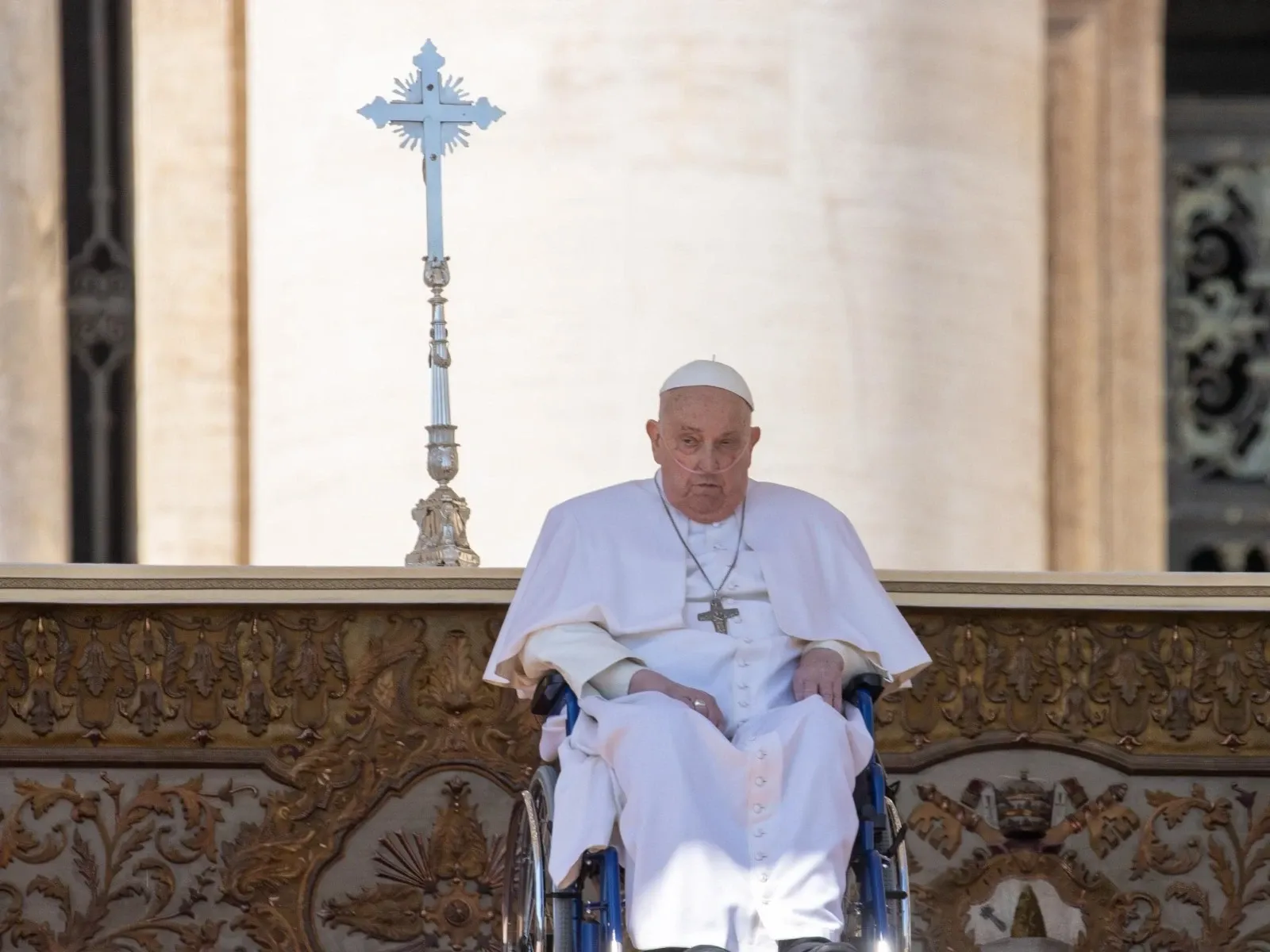He noted that entire nations have struggled to “break free of the chains of exploitation and corruption that fuel hatred and violence.”
“Our human community bears, in its memory and its flesh, the scars of ever more devastating wars and conflicts that affect especially the poor and the vulnerable,” the pope said.
Pope Francis recalled his meeting with survivors of the atomic bombs dropped on Hiroshima and Nagasaki on his recent apostolic journey to Japan. He said that their testimony bears witness to succeeding generations of the unspeakable suffering and horror caused by the bombings.
The pope reiterated his message that nuclear deterrence can only produce “the illusion of security.”
“We cannot claim to maintain stability in the world through the fear of annihilation, in a volatile situation, suspended on the brink of a nuclear abyss and enclosed behind walls of indifference,” he said.
Pope Francis said that the answer to breaking today’s unhealthy mentality of threats and fear is to pursue “a genuine fraternity based on our common origin from God” through dialogue and mutual trust.
Only by choosing “the path of respect can we break the spiral of vengeance,” he said, underlining the importance of forgiveness by quoting Christ's command to forgive not “seven times, but seventy times seven.”
“This path of reconciliation is a summons to discover in the depths of our heart the power of forgiveness and the capacity to acknowledge one another as brothers and sisters. When we learn to live in forgiveness, we grow in our capacity to become men and women of peace,” he said.
For Christians, confession is a part of the peace process because it “renews individuals and communities” and “bids us to keep our gaze fixed on Jesus, who reconciled all things … by making peace through the blood of his cross,” the pope said.
The sacrament “requires us to set aside every act of violence in thought, word and deed, whether against our neighbours or against God’s creation,” he said.
The World Day of Peace – instituted by St. Paul VI in 1968 – is celebrated each year on the first day of January. The pope provides a special message for the occasion, which is sent to all foreign ministers around the world.





